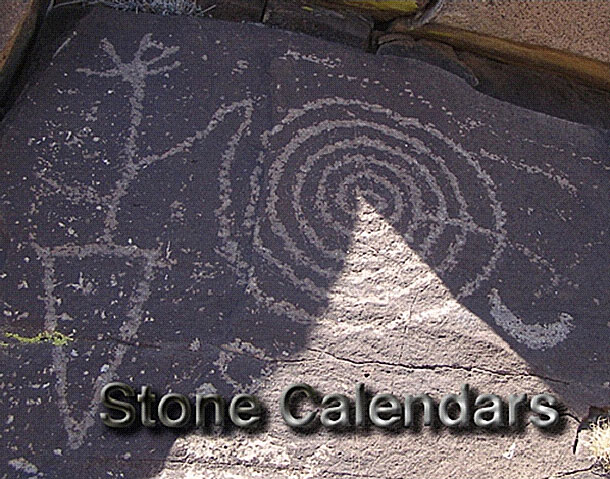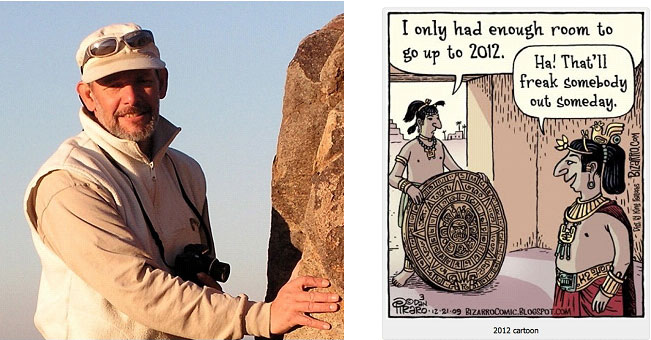Ron Barber was born
and raised in the oil fields of South America, out in the middle of
the boondocks. His parents hauled their kids through the mountains,
deserts and jungles; always in search of new adventures.
Encountering indigenous cultures and ancient sites has led to a
long-term interest and curiosity about lost civilizations. He is an
explorer by nature, an engineer by profession.

There are hundreds of
stone calendar sites around the southwest located near ancient
inhabited areas that were used to mark the annual seasons and
important dates. These calendars are made with specific glyphs that
align with unique shadows used to mark the time of year, including
winter and summer solstice, equinoxes, cross-quarters and many other
important dates. The Stone Calendar research project, is attempting
to identify the western regional extent of this type of calendar
technology. Sites have been surveyed and studied in New Mexico,
Arizona, Utah, Colorado, California, as far south as the Sierra
Madres in Mexico, and as far north as the Columbia River Gorge in
Washington. Sites are studied using surveying techniques, 3
dimensional predictive modeling, and final field observations
including time-lapse photography. The study has helped to identify
unique cultural variations in glyph design and revealed the
technological evolution over time, leading to very complex and
accurate stone calendars. Ron will share some preliminary results of
the Stone Calendar Project; a hobby that somehow got out of hand.

Ron is a mechanical
Engineer with over 30 years at the national laboratories; Lawrence
Livermore in California and Los Alamos in New Mexico. Over the last
4 years he has focused an effort to study rock art throughout the
southwest, specifically looking for glyphs that might provide
insights into early astronomical knowledge. He has applied his
engineering background to develop a systematic approach to surveying
and identifying glyphs for potential study.